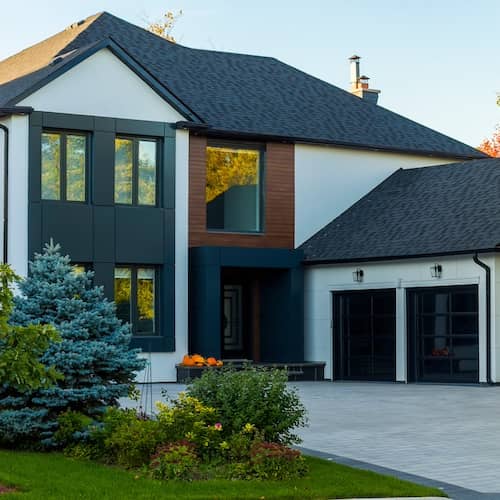Vacant home insurance: When and why you need it
Author:
Miranda CraceFeb 27, 2024
•4-minute read
A vacant property differs from a lived-in one in several ways. With its empty rooms and corners collecting dust, it most likely feels more like a house than a home. But despite its differences, it’s still a place that can be filled with new life, new things and new memories. More importantly, it’s still a place that needs to be protected – if not for its own potential, then for the potential hit to your finances should any damage happen to the property.
If you own a vacant home now or plan to leave a home vacant in the future, consider vacant home insurance to help protect your property and provide you peace of mind. Let’s take a closer look at what vacant home insurance is and why it’s important.
What is vacant home insurance?
Vacant home insurance is specialty home insurance coverage for properties that are uninhabited or considered vacant homes. Also referred to as vacant property insurance or unoccupied home insurance, this type of coverage can protect homeowners from financial loss due to unexpected damage that happens when they’re away for an extended period of time.
Vacant property insurance vs. homeowners insurance
Many people may assume that a standard homeowners insurance policy would cover a vacant home. Unfortunately, typical homeowners insurance policies don’t cover most claims on a vacant property because they often have vacancy clauses, which restrict or exclude coverage on properties that have been vacant for a certain time – usually 30 or 60 days. Since vacant homes are often more vulnerable to things like theft, vandalism and other damage, insurance companies would rather not take on the risk (and additional expense) by allowing coverage within the typical homeowners insurance policy.
What properties should have vacant house insurance?
Ideally, all vacant homes should be protected with vacant home insurance. A vacant home is a property that’s empty and not in use for a significant amount of time. It doesn’t always mean it’s abandoned or boarded up. It simply means it’s unoccupied and clear of personal property. The home could be vacant because it’s up for sale and the sellers have already moved. It could be a vacation home that’s only used for a few months out of the year, one that’s currently undergoing renovations or a rental property that’s waiting for new tenants.
It’s important to note that a vacant home and an unoccupied home are different. An unoccupied home may only be out of use for a short period of time and personal property typically remains in the home, even when no one is there.
What does vacant home insurance cover?
Vacant home insurance covers many of the same things a standard homeowners insurance policy does – just under different circumstances. Your plan may cover you from loss or damage caused by:
- Lightning
- Hail
- Wind
- Fire
- Smoke
- Explosion
- Theft
- Vandalism
- Leaking pipes
What your vacant home insurance covers and how long the coverage lasts will depend on the insurance company and the policy you choose. When getting vacant home insurance, make sure you review your insurance company’s specific protections for this type of coverage.
Why is vacant home insurance important?
Vacant homes are a greater insurance risk because, without someone there to watch over the property, the home is more vulnerable to break-ins and vandalism. And because there’s no one there to discover water leaks or report a fire early on, the home may incur more damage from things like a burst pipe, fire or natural disaster because early intervention wasn’t possible.
How much is vacant home insurance?
The cost of a vacant home insurance policy varies based on the insurance company, the policy you choose and the home’s risk profile. Because unoccupied and vacant homes often pose a greater risk of damage, vacant home insurance is expensive. The average cost is about 50% – 60% more than a standard insurance policy for an occupied home.
Of course, this is for an annual plan. If the home doesn’t sit vacant for long, the annual cost may be prorated. Some companies may also allow you to purchase shorter-term policies.
How do I purchase vacant home insurance?
Think you may need insurance for a vacant home? Here’s how to go about getting coverage.
1. Determine whether you need a vacant home insurance policy
The first thing you’ll want to do is find out how long your home can sit unoccupied before it’s considered vacant, then determine whether you need vacant home insurance. Remember, you’ll always want to be honest with your insurance company about the status of your property.
2. See what’s available through your current insurance provider
If you need vacant home insurance, start by asking your insurance provider how they handle this type of coverage. While some allow you to add coverage to an existing policy, others require a completely separate policy.
3. Shop around and compare quotes
Once you talk to your current provider, don’t be afraid to shop around for the best coverage and price. When comparing companies, don’t just think about monthly costs. Consider other factors, like deductibles and coverage limits as well.
4. Apply for your vacant home insurance
Once you know which provider you’re using, gather up the documents you’ll likely need to apply for coverage. These may include a government-issued ID and proof that you own the property. You may also need to provide the estimated value of the home and estimated amount of time it may sit vacant.
The bottom line: Vacant home insurance offers peace of mind
If you plan on leaving a home vacant for more than 30 days – whether it’s a vacation home, a rental property or a renovation project – you should consider purchasing vacant home insurance. Since the home could be more susceptible to theft, vandalism or physical damage, this type of insurance can provide peace of mind and protect your finances should something happen while no one is living there.
If you’re renting out your property or considering it, research how to efficiently screen tenants, or learn how to best manage a rental property to avoid tenant turnover and lengthy periods of vacancy.
Miranda Crace
Related resources

1-minute read
Amrock is now Rocket Close℠
Amrock, the nationwide title, mortgage settlement, and appraisal management company, is now Rocket Close.
Read more

4-minute read
What to expect after closing on a home
The paperwork has been signed and you’ve got the keys in hand. Now what? Here’s what to expect after closing on a home.
Read more
6-minute read
What is a home warranty and how much does it cost?
A home warranty is a contract covering the repair or replacement of household appliances and home systems. Learn how it works and average plan prices.
Read more